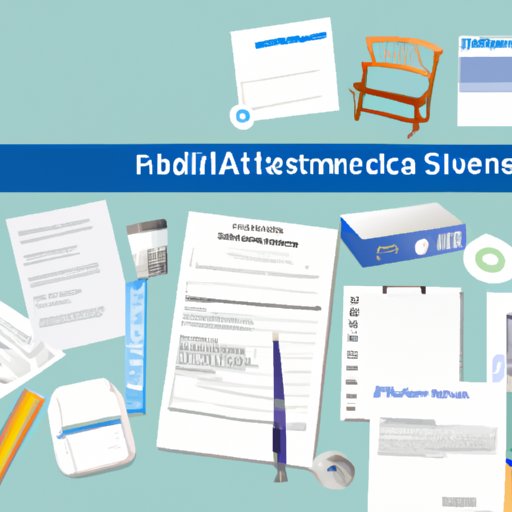Introduction
Starting a home health aide business can be an excellent way to provide compassionate care to those who need it. As the elderly population increases, so does the demand for these services. With the right preparation and knowledge, you can start your own successful home health aide business.
This article will provide step-by-step guidance on how to start your own home health aide business. It will cover topics such as researching local regulations and licensing requirements, developing a business plan, creating a marketing plan, securing insurance policies and bonding, and investing in equipment and supplies.
Researching Local Regulations and Licensing Requirements
The first step in starting your own home health aide business is to research local regulations and licensing requirements. Depending on where you live, there may be different laws that govern home health care businesses. It is important to understand these laws in order to ensure that your business is compliant.
Identifying Relevant Laws
There are several resources available to help you identify relevant laws in your area. Your state and local governments likely have websites with information about the laws governing home health aide businesses. You should also check with professional organizations, such as the National Association for Home Care & Hospice, for any additional regulations or guidelines.
Acquiring Necessary Licenses
Once you have identified the relevant laws, you will need to acquire the necessary licenses to operate your business. Depending on your location, you may need to register your business with the state, obtain a business license, and/or obtain other certifications. Check with your local government to determine the exact requirements in your area.
Developing a Business Plan
Creating a comprehensive business plan is essential to the success of your home health aide business. This document will outline the services you will offer, the costs associated with running the business, and sources of revenue. It will also serve as a roadmap for the future of your business.
Outlining Services
Your business plan should begin by outlining the services you will offer. Home health aides typically provide assistance with activities of daily living, such as bathing and dressing, as well as basic medical care, such as monitoring vital signs. Think about what services you want to offer and how you will deliver them.
Estimating Costs
Next, you will need to estimate the costs associated with running your business. You should include things like overhead costs, employee wages, and equipment costs. Be sure to include a reasonable margin for unexpected expenses.
Generating Sources of Revenue
Finally, you will need to generate sources of revenue. Consider potential clients, such as hospitals, nursing homes, and private individuals. Research the rates charged by similar businesses in your area to determine a fair rate for your services.
Creating a Marketing Plan
In order to reach potential customers, you will need to create a marketing plan. This plan should include strategies for targeting potential clients, promoting your services, and building brand awareness.
Targeting Potential Clients
When developing your marketing plan, you should focus on targeting potential clients. Think about who your ideal clients are and how you will reach them. Consider using online marketing techniques, such as social media and search engine optimization, to reach a wider audience.
Promoting Services
Once you have identified potential clients, you will need to promote your services. Create materials, such as brochures, flyers, and website content, to let people know about your business. You should also consider attending networking events to meet potential clients.

Securing Insurance Policies and Bonding
In order to protect your business, you will need to secure insurance policies and bonding. These measures will help protect you from liability and financial losses.
Types of Insurance Needed
You will need to obtain several types of insurance to protect your business. These include general liability, professional liability, and workers’ compensation insurance. You should also consider purchasing property and casualty insurance to protect your equipment and supplies.
Obtaining Bonding
You may also need to obtain bonding. Bonding is a form of insurance that protects your clients from losses due to theft or dishonesty. Check with your local government to see if bonding is required in your area.

Investing in Equipment and Supplies
You will need to invest in certain equipment and supplies in order to run your business. These items include medical supplies, personal care items, cleaning supplies, and office supplies. Make sure to purchase quality items from reputable suppliers.
List of Necessary Items
Make a list of the items you need and shop around for the best prices. Consider buying in bulk to save money. Additionally, you may be able to find gently used items at a discounted price.
Finding Quality Suppliers
When looking for suppliers, look for ones with a good reputation. Ask for references and read customer reviews to make sure they are reliable. You want to make sure you are getting quality products at a fair price.
Conclusion
Starting a home health aide business can be a rewarding and profitable endeavor. With the right preparation and knowledge, you can start your own successful business. By researching local regulations and licensing requirements, developing a business plan, creating a marketing plan, securing insurance policies and bonding, and investing in equipment and supplies, you can set yourself up for success.
(Note: Is this article not meeting your expectations? Do you have knowledge or insights to share? Unlock new opportunities and expand your reach by joining our authors team. Click Registration to join us and share your expertise with our readers.)
